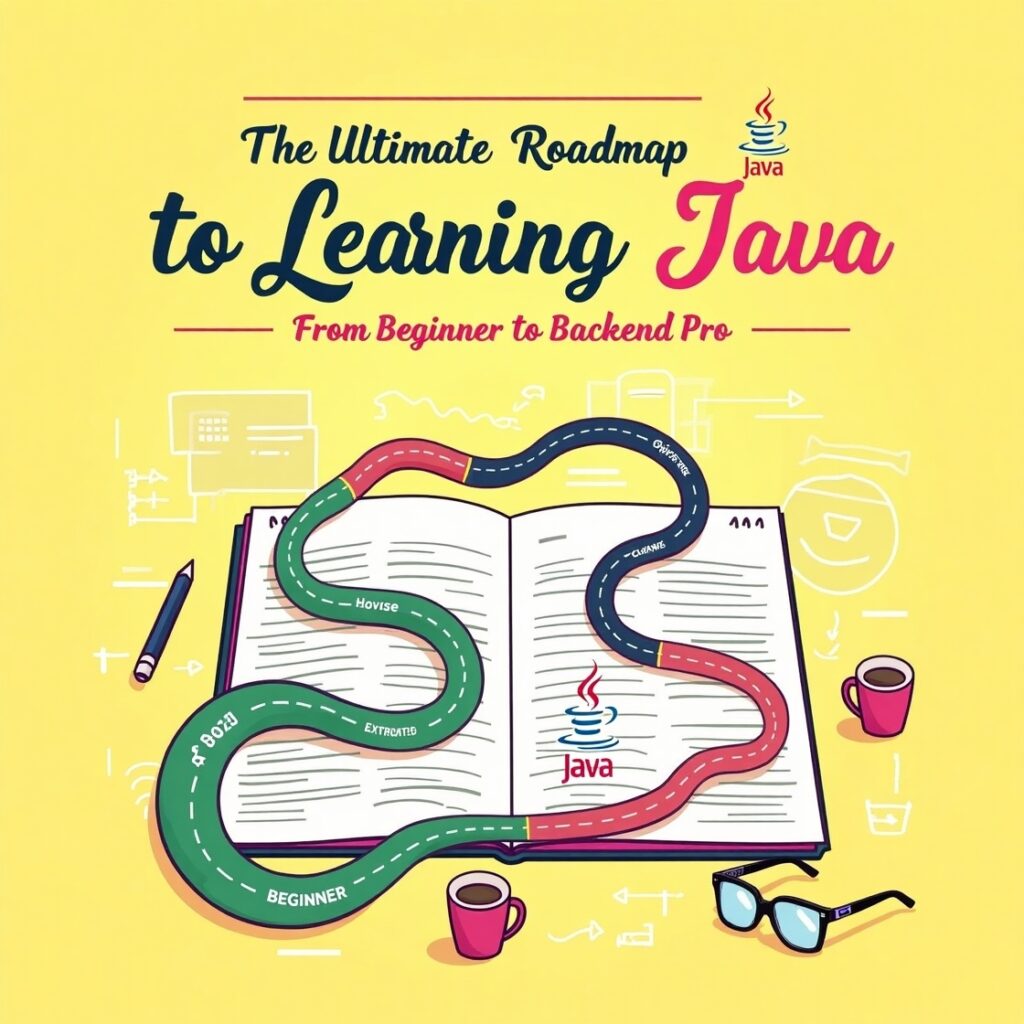If you’re starting your Java journey or thinking about upskilling, you might be wondering:
Where do I begin? What should I learn next? How deep should I go?
In 2025, Java remains one of the most in-demand programming languages—powering web apps, mobile apps (Android), enterprise systems, and even the backend of cloud-native platforms.
But mastering Java isn’t about learning everything. It’s about following the right path, at the right pace.
Here’s your Java Learning Roadmap—designed to take you from complete beginner to confident backend engineer.

🔰 1. Core Java (The Foundation)
Start Here
Master the language fundamentals before diving into tools and frameworks.
✔ Variables, Data Types, Operators
✔ Conditional Statements & Loops
✔ Arrays and Strings
✔ Object-Oriented Programming (OOP): Encapsulation, Inheritance, Polymorphism, Abstraction
✔ Exception Handling
✔ File Handling
✔ Java Collections (List, Map, Set)
✔ Multithreading Basics
✔ JVM, JRE, and JDK – How Java really runs
📚 Tools: IntelliJ IDEA or Eclipse, JDK 17+
🧪 2. Object-Oriented Design & Logic Building
Build strong problem-solving skills and understand design better.
✔ Solve problems on platforms like HackerRank, LeetCode
✔ Learn basic design patterns
✔ Build small console apps (banking system, to-do list, quiz app)
🧩 3. Advanced Java (Enterprise Readiness)
Go beyond the basics. Time to learn how real-world applications are built.
✔ JDBC (Java Database Connectivity)
✔ Servlet & JSP
✔ Java Beans
✔ MVC architecture
✔ HTTP, sessions, cookies, lifecycle of web apps
🧱 4. Spring Framework Ecosystem
This is where Java meets real-world production.
✔ Spring Core
✔ Spring Boot (auto-configuration, REST APIs)
✔ Spring MVC (build scalable web apps)
✔ Spring Data JPA (ORM + DB integration)
✔ Spring Security (auth, access control)
✔ Hibernate (ORM + advanced DB mapping)
☁️ 5. Tools, Version Control & Deployment
Java is part of a larger ecosystem. Get comfortable with the modern development stack.
✔ Git & GitHub (version control)
✔ Maven / Gradle (dependency management)
✔ Docker (for containerization)
✔ CI/CD basics (Jenkins or GitHub Actions)
✔ MySQL / PostgreSQL (RDBMS)
✔ RESTful APIs
🚀 6. Build Projects
Projects help you move from “I understand” to “I can build.” Examples:
- Employee Management System
- Online Bookstore
- RESTful API for Food Delivery App
- Blog with Authentication
- E-commerce Backend with Spring Boot + JPA
🎯 7. Optional Paths Based on Interest
- Android Development → Java + Android SDK
- Cloud & DevOps → Java with AWS, Docker, Kubernetes
- Data Structures & Algorithms → For tech interviews
- Microservices → Spring Cloud, API Gateways, Eureka
📝 Final Thoughts
The goal isn’t to learn Java in a week. It’s to master it over time, step by step—with clarity and purpose.
The real value of Java isn’t in the syntax—it’s in the way it teaches you how to think, architect, and scale.
























